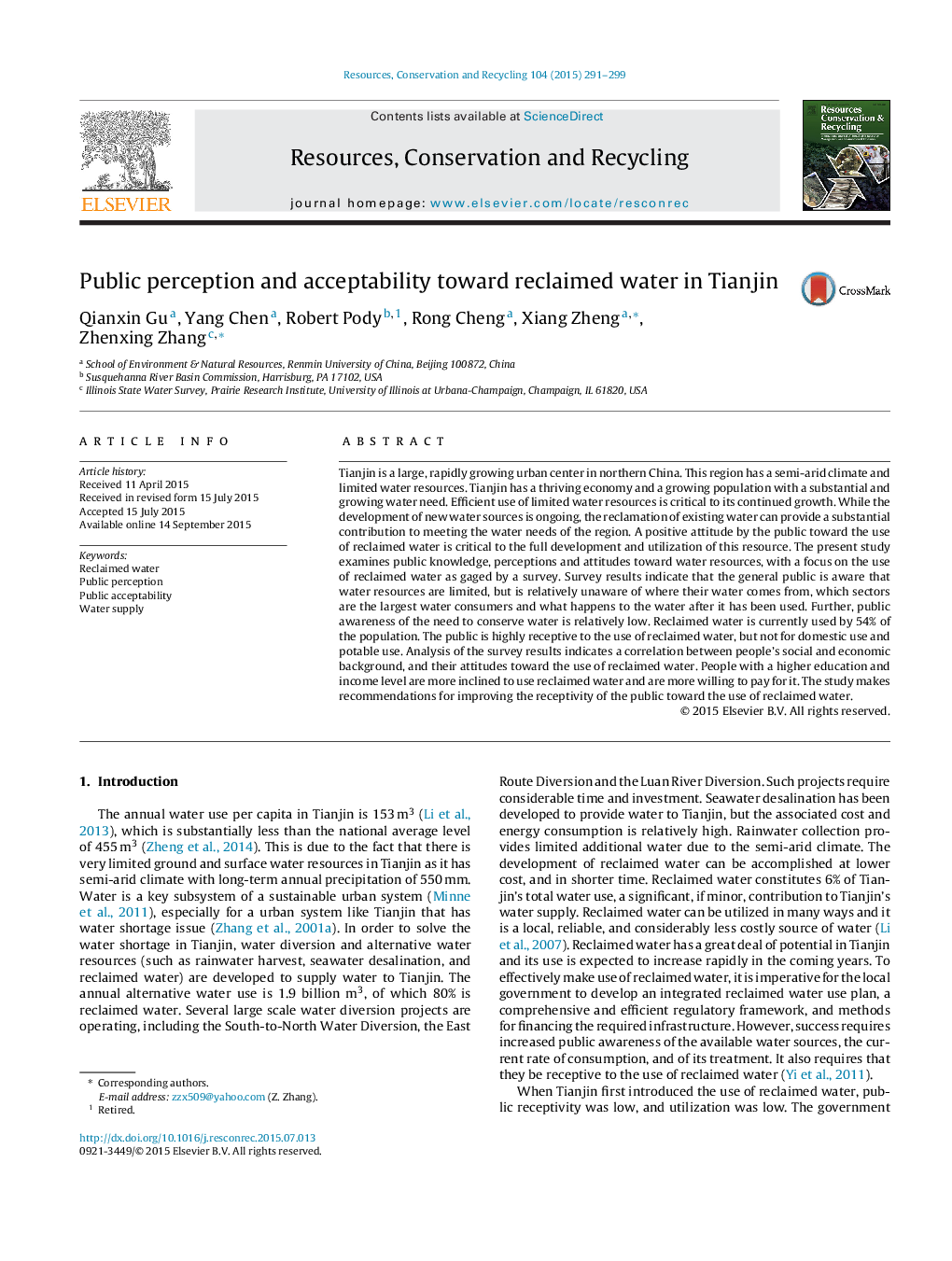| Article ID | Journal | Published Year | Pages | File Type |
|---|---|---|---|---|
| 1062830 | Resources, Conservation and Recycling | 2015 | 9 Pages |
•Develop a comprehensive survey on receptivity toward the use of reclaimed water for cities in China.•Conduct a survey on receptivity toward the use of reclaimed water in Tianjin.•Citizen in Tianjin are generally receptive toward the use of reclaimed water.•Provide valuable information for reclaimed water development in Tianjin.
Tianjin is a large, rapidly growing urban center in northern China. This region has a semi-arid climate and limited water resources. Tianjin has a thriving economy and a growing population with a substantial and growing water need. Efficient use of limited water resources is critical to its continued growth. While the development of new water sources is ongoing, the reclamation of existing water can provide a substantial contribution to meeting the water needs of the region. A positive attitude by the public toward the use of reclaimed water is critical to the full development and utilization of this resource. The present study examines public knowledge, perceptions and attitudes toward water resources, with a focus on the use of reclaimed water as gaged by a survey. Survey results indicate that the general public is aware that water resources are limited, but is relatively unaware of where their water comes from, which sectors are the largest water consumers and what happens to the water after it has been used. Further, public awareness of the need to conserve water is relatively low. Reclaimed water is currently used by 54% of the population. The public is highly receptive to the use of reclaimed water, but not for domestic use and potable use. Analysis of the survey results indicates a correlation between people's social and economic background, and their attitudes toward the use of reclaimed water. People with a higher education and income level are more inclined to use reclaimed water and are more willing to pay for it. The study makes recommendations for improving the receptivity of the public toward the use of reclaimed water.
